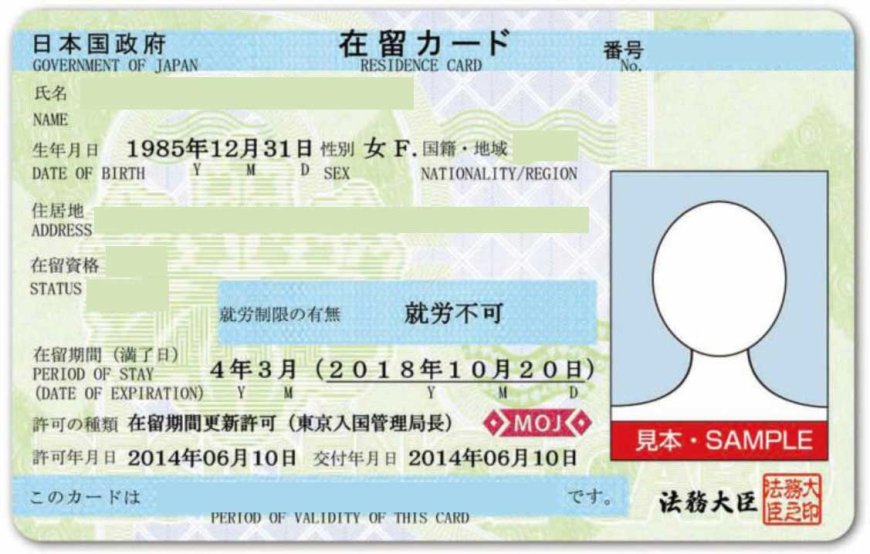Debate Heats Up Over Japan's Permanent Residency Revocation
A proposed legal amendment allowing for the revocation of permanent residency status due to deliberate nonpayment of taxes and social insurance premiums is causing significant debate in Japan's Diet. Critics argue the measure is unnecessary and discriminatory, while the government insists it's a necessary step to maintain fiscal integrity.

Controversial Bill Sparks Fierce Discussion in the Diet
In recent discussions within Japan's Diet, a proposed legal amendment allowing for the revocation of permanent residence permits due to intentional failure to pay taxes and social insurance premiums has sparked significant debate. This proposal has drawn attention not only for its potential impact on foreign residents but also for the broader implications it holds for Japan's immigration and labor policies.

The Proposed Legal Amendment
The amendment in question aims to update the laws related to permanent residence in Japan. Specifically, it seeks to introduce a clause that would permit the government to revoke the permanent residence status of individuals who deliberately avoid paying taxes and social insurance premiums. The government argues that this measure is necessary to maintain the integrity of Japan's tax and social security systems, especially in light of the anticipated increase in permanent residency applications.
According to the proposal, the revocation would apply only in cases of "malicious intent" and not in situations where nonpayment is due to unavoidable circumstances. This distinction is meant to ensure that those facing genuine difficulties are not unfairly penalized. Furthermore, the government has indicated that individuals whose permanent residence is revoked could still apply for and potentially receive another type of residency status, subject to the Ministry of Justice's discretion.

Opposition and Criticism
Despite the government's assurances, the proposal has faced strong opposition from several quarters. Critics argue that the amendment is both unnecessary and discriminatory. One of the primary points of contention is the lack of statistical evidence supporting the need for such a measure. Opposition parties have repeatedly highlighted that there are no comprehensive data on the rate of nonpayment among permanent residents, making it difficult to justify the proposed change.
In response to these criticisms, the Immigration Services Agency of Japan conducted a sample survey. The survey, which examined 1,825 cases of permanent residence applications for children of permanent residents between January and June 2023, found 235 instances of nonpayment. While the nonpayment rate for the national pension premiums was just over 10%, this figure was still lower than the national average of just under 20% for the fiscal year 2020.

Legislative Debates
The issue has been a focal point in various legislative sessions, with lawmakers from opposition parties challenging the rationale and necessity of the amendment. During a meeting of the House of Representatives' Committee on Judicial Affairs, Sayuri Kamata of the Constitutional Democratic Party of Japan (CDP) questioned why foreign residents should face such severe penalties for nonpayment when Japanese citizens are subject to asset investigations and seizure instead. She argued that revoking permanent residence status was a disproportionate response.
Similarly, at the House of Representatives' Committee on Health, Labor and Welfare, legislator Chinami Nishimura of the CDP raised concerns about the sample survey's findings. Nishimura pointed out that the government had not provided clear answers regarding the number of willful nonpayment cases among the 235 instances identified. She expressed her inability to agree with the addition of this new ground for revocation, labeling it as a perplexing and unjustified measure.
Yasushi Adachi of Nippon Ishin (the Japan Innovation Party) also demanded a more accurate assessment of the nonpayment situation, criticizing the reliance on a sample survey instead of a comprehensive study. This sentiment reflects a broader demand for more substantial evidence before enacting such significant legal changes.

Implications for Foreign Workers
The controversy surrounding the proposed amendment also intersects with broader discussions about Japan's labor policies. The bill in question includes provisions to replace the existing Technical Intern Training Program with a new system aimed at accepting unskilled foreign workers in sectors experiencing labor shortages. This shift is part of Japan's efforts to address its demographic challenges and labor market needs.
However, the addition of the revocation clause raises concerns about the treatment of foreign workers and residents. Critics argue that such measures could create an environment of insecurity and distrust, potentially deterring skilled and unskilled workers from seeking opportunities in Japan. This could undermine the very goals the government aims to achieve by reforming its immigration and labor policies.

Navigating the Balance
The ongoing debates in Japan's Diet over the proposed amendment to revoke permanent residence status for intentional nonpayment of taxes and social insurance premiums highlight the complexities of balancing immigration policies, labor market needs, and social security systems. While the government maintains that the measure is necessary and limited in scope, opposition lawmakers and critics demand more substantial evidence and a more measured approach.
As discussions continue, the outcome of this legislative proposal will have significant implications not only for the affected foreign residents but also for Japan's broader approach to immigration and labor policy. The resolution of this contentious issue will likely shape the future landscape of Japan's foreign workforce and its integration into Japanese society.
Find Cheap Flight Tickets to any Destinations in Japan and the Philippines
Nipino.com is committed to providing you with accurate and genuine content. Let us know your opinion by clicking HERE.































































